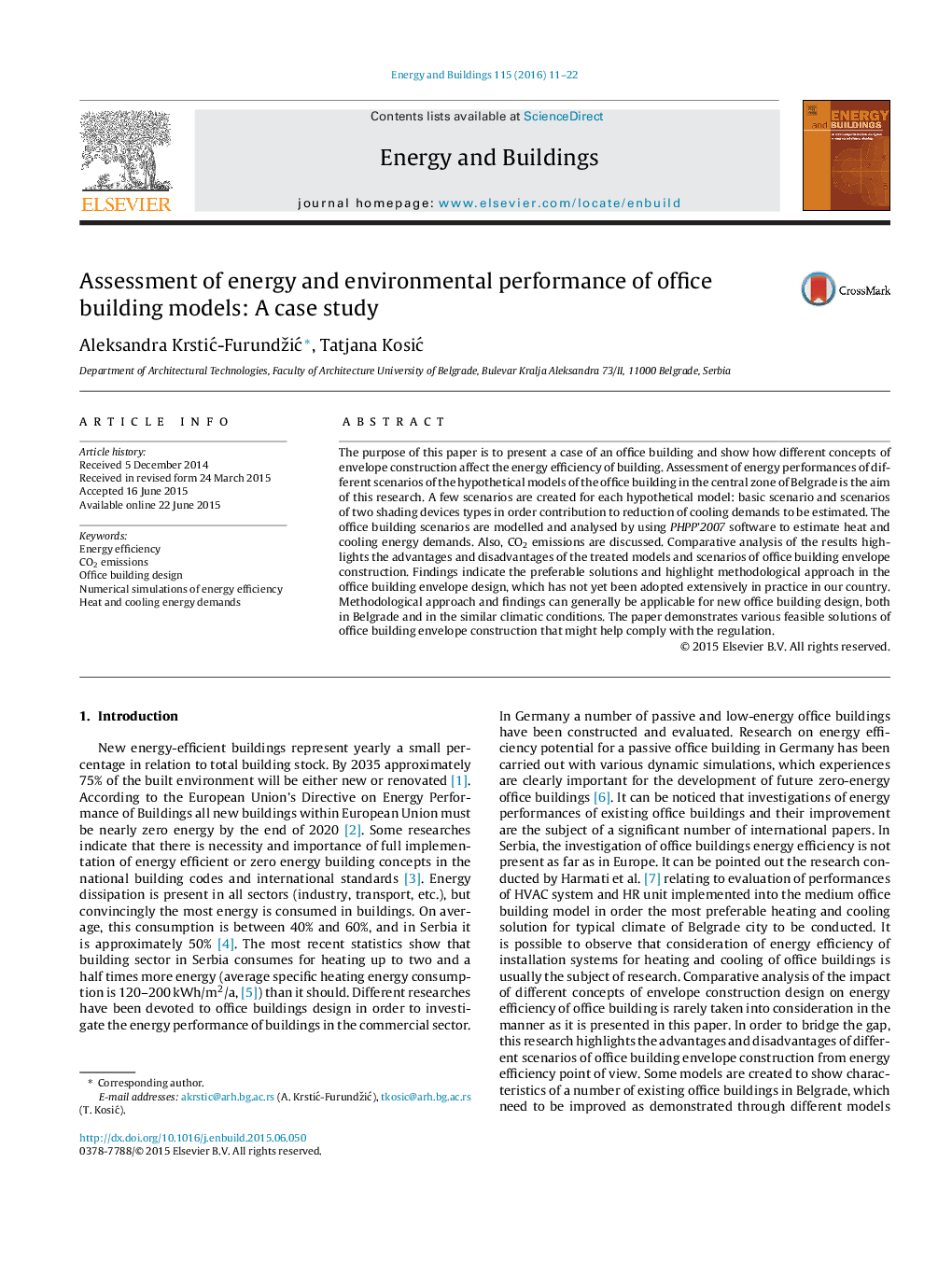| Article ID | Journal | Published Year | Pages | File Type |
|---|---|---|---|---|
| 262236 | Energy and Buildings | 2016 | 12 Pages |
•Influence of envelope construction on energy performances of the office building in the climate conditions of Belgrade (Serbia).•Assessment of heating and cooling demands and CO2 emissions according to different envelope designs.•Appropriate solution is glass facade with triple low-e glazing and movable external shading devices.•Facade system and shading devices alterations in order to reduce energy demands.•Methodological approach for the selection of favourable office building construction in terms of energy and environmental performances.
The purpose of this paper is to present a case of an office building and show how different concepts of envelope construction affect the energy efficiency of building. Assessment of energy performances of different scenarios of the hypothetical models of the office building in the central zone of Belgrade is the aim of this research. A few scenarios are created for each hypothetical model: basic scenario and scenarios of two shading devices types in order contribution to reduction of cooling demands to be estimated. The office building scenarios are modelled and analysed by using PHPP’2007 software to estimate heat and cooling energy demands. Also, CO2 emissions are discussed. Comparative analysis of the results highlights the advantages and disadvantages of the treated models and scenarios of office building envelope construction. Findings indicate the preferable solutions and highlight methodological approach in the office building envelope design, which has not yet been adopted extensively in practice in our country. Methodological approach and findings can generally be applicable for new office building design, both in Belgrade and in the similar climatic conditions. The paper demonstrates various feasible solutions of office building envelope construction that might help comply with the regulation.
